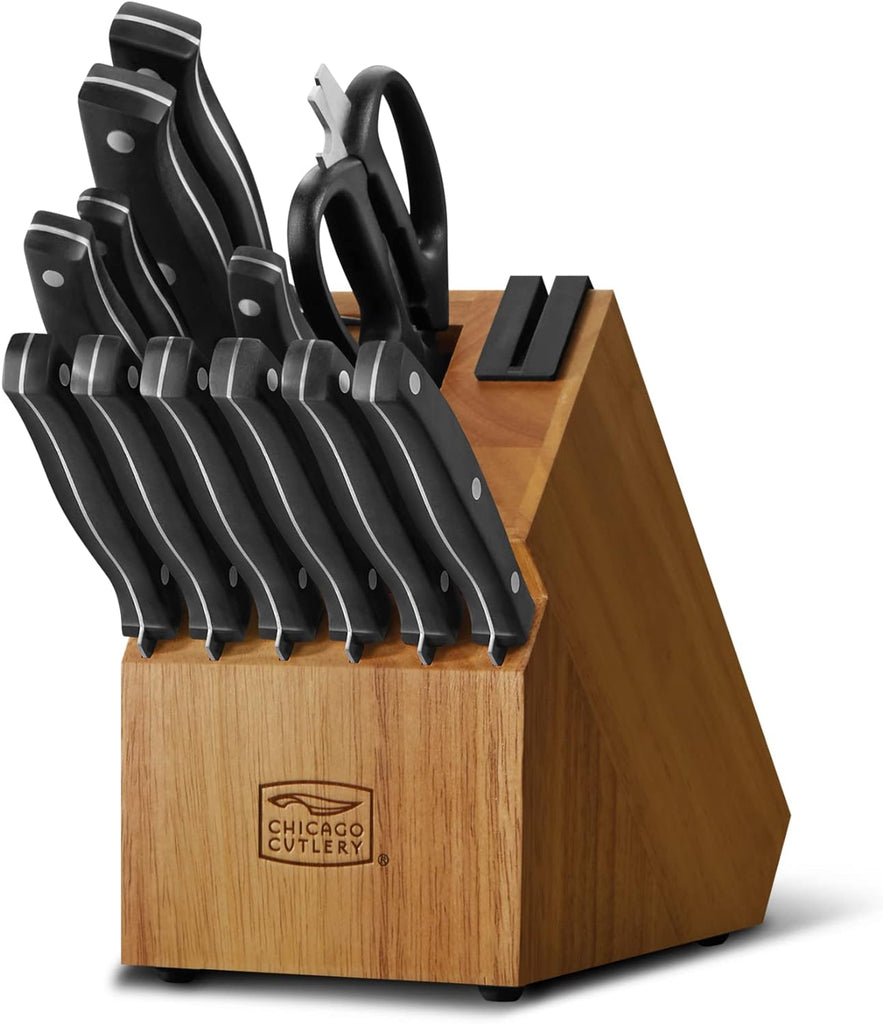For kitchen professionals and enthusiasts alike, understanding the quality and durability of your knives is of paramount importance. One of the key factors that determine a knife's performance is its blade hardness. If you've been wondering 'how to test my knife blade hardness', you're in the right place. In this detailed article, we'll explore the methods, tools, and techniques to effectively assess the hardness of your knife blade, ensuring excellent performance every time you slice, dice, and chop.

Understanding Knife Blade Hardness
Blade hardness is crucial in defining a knife's durability and edge retention. Harder blades tend to retain sharpness longer but may be more brittle, while softer blades might need frequent sharpening but are more resilient to impact.
Knife blade hardness is typically measured on the Rockwell Hardness Scale, abbreviated as HRC. Knowing your knife's HRC rating will help you understand its capabilities and limitations, guiding you in its maintenance and use.

Why Test Your Knife Blade Hardness?
- Performance Assessment: Testing hardness helps you evaluate your knife's suitability for different kitchen tasks.
- Maintenance Planning: Understanding hardness enables proper sharpening and care schedules, ensuring longevity.
- Investment Protection: It verifies the knife's quality, confirming that you get value for your investment.

Necessary Tools for Testing Knife Blade Hardness
Before diving into the testing methods, you need to gather the necessary tools:
- Rockwell Hardness Tester: A standard tool in metallurgy, offering precise hardness measurements.
- Portable Hardness Testers: Battery-operated devices for quick testing.
- Diamond Files: Used for manual hardness tests, though they are less precise than digital meters.
Knife Blade Hardness Testing Methods
There are several methods to gauge the hardness of your knife blade, some more accessible than others:
Rockwell Hardness Testing
This method involves using a Rockwell Hardness Tester to apply a specific force to an indentation on the blade and measuring the penetration depth. The HRC value is determined based on this measurement.
If you prefer professional results, you might want to visit a certified testing lab with advanced Rockwell testers.
File Hardness Testing
This manual method uses diamond files to scratch the blades surface to determine its hardness.
-
Procedure:
- Ensure your knife is clean and dry.
- Start with a file of known hardness.
- Scratch the blade softly.
- Observe whether the file leaves a mark.
- Increase file hardness incrementally until it does not leave a mark.
- Outcome: This method provides an approximate HRC rating by correlating file hardness with blade hardness.
Rebound Hardness Testing
Leeb Portable Hardness testers use a diamond-tipped hammer to impact the blade, measuring the rebound velocity to determine hardness.
This method is less precise than Rockwell testing but offers a quick, non-destructive evaluationideal for routine checks.
Scratch Testing
This rudimentary approach involves scraping the knife blade with materials of known hardness on the Mohs scale, such as quartz or ceramic.
While not scientifically robust, it can provide a rough idea of the blades hardness for hobbyists and home users.
Interpreting Hardness Test Results
Understanding your knife blade's hardness helps tailor its use and maintenance:
-
HRC Ratings and Their Implications:
- 50-55 HRC: Softer blades, easy to sharpen, ideal for general use but may require frequent honing.
- 56-60 HRC: Balanced blades, good edge retention, suitable for most kitchen tasks.
- 60+ HRC: Hard blades, excellent edge retention, more brittle, used for precision tasks.
FAQs: Frequently Asked Questions about Knife Blade Hardness
1. How often should I test my knife blade hardness?
It is recommended to test the hardness of your knife blade every six months or after significant use to ensure it performs optimally.
2. Can a knife's hardness change over time?
Generally, a knife's hardness remains constant unless the blade undergoes significant wear, damage, or extensive sharpening.
3. Are there specific knives that require hardness testing?
High-quality, professional knives, particularly those used in specialty tasks like filleting or sushi making, benefit the most from regular hardness testing. Knife Care can provide more insights on maintaining your high-end blades.
Learn more about knife care at Victorinox Knives, celebrated for their exceptional quality.
For those with a keen interest in knife sets, check out Knife Set Benefits.
Learn more about quality knife care and maintenance.
As an Amazon Associate, I earn from qualifying purchases.


























